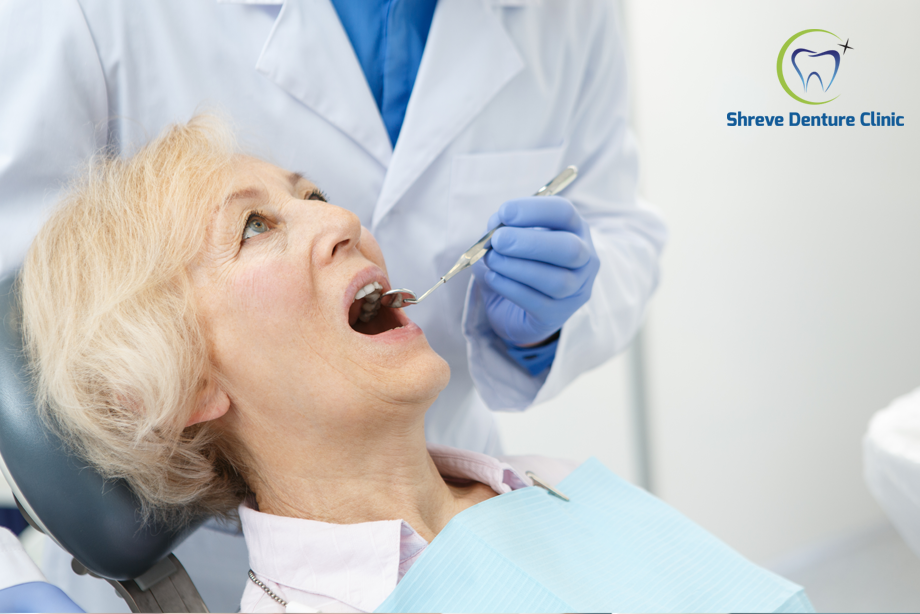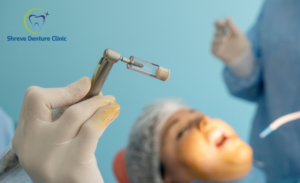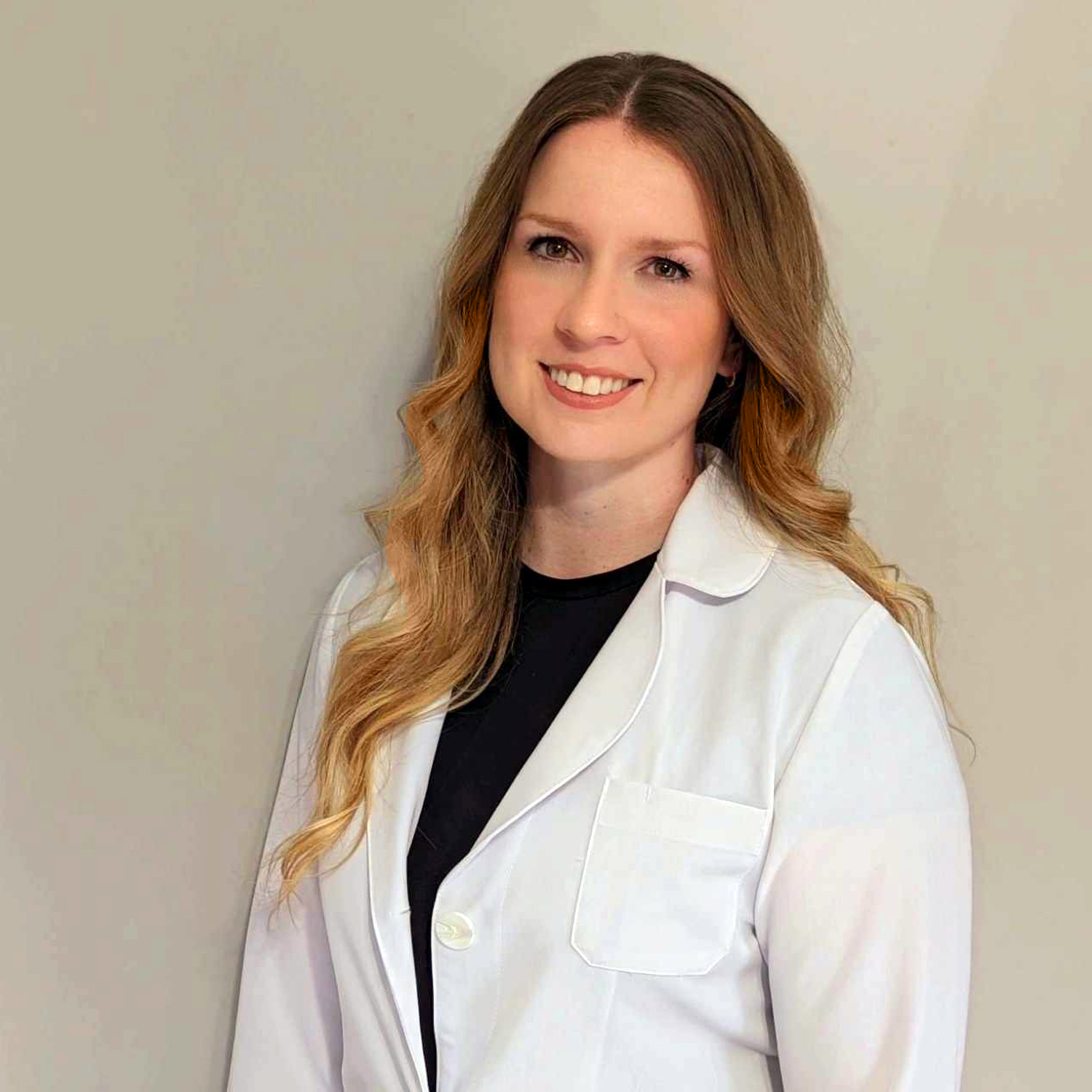If you’re like most people, you worry about the health of your teeth. You wonder if you should get dentures now or wait until you’re older. Likewise, it’s important to consider any existing oral conditions before you get dentures.
There’s no one-answer-for-all to those questions. Getting dentures depends on your situation and needs. Overall, it’s wise to talk to a denturist to determine which route is best for you. They can discuss the process and determine if the benefits outweigh the drawbacks.
Today, you’ll learn about dentures to see if now is the right time for you to book a consultation and take that next step.
When Do Most People Get Dentures?
How long should you wait to get dentures? Most people will require dentures between 55 and 64 years old. However, that number is dropping. Younger people often get dental implants or partial dentures after losing their teeth. Age isn’t the only reason to get dentures.
What to Consider When Deciding to Get Dentures
If you’re thinking of getting full dentures, it’s important to consider these factors:
Loose Teeth
Loose teeth often indicate that the gum tissue and muscle are receding. Though they’re deteriorating, it could be a slow process. Your tooth will get less support as years go by, which will cause it to become looser. The condition often comes with persistent toothaches, and most people seek treatment long before the teeth come out.
Inability to Eat Certain Foods
Corn on the cob, apples, and other foods can be hard to eat with missing or loose teeth. They require more pressure as you bite down. If you find yourself avoiding crunchy and hard foods because you can’t chew them, dentures could be helpful.
Swollen Gums
Red and swollen gums might be a sign that you have gum disease. The plaque build-up causes an infection deep in the gums. Sometimes, dentists can offer treatments, such as deep cleanings or surgery, to remove the tissue and protect your teeth.
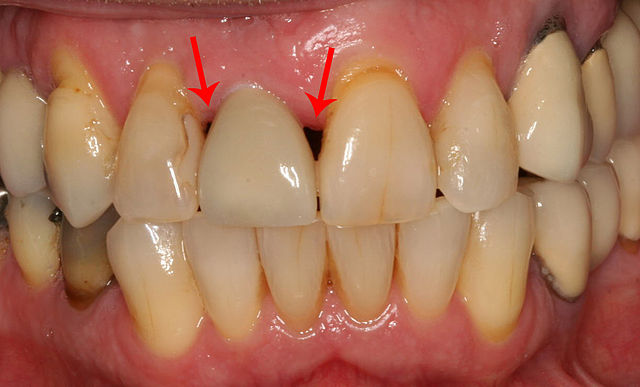
However, dentures can prevent infections from happening because they cover the open ridges that collect bacteria. If you believe you have gum disease, please contact Shreve Denture Clinic to talk about your options.
Types of Dentures
It’s important to choose the right type of dentures for your needs. For example, you might require partial dentures after tooth extractions or may have lost all of your teeth and need a full set. Let’s learn more about them below:
Complete Dentures
Complete dentures will replace all of your teeth. They typically sit atop the gums, which is different than dental bridges, which get anchored to your existing teeth. Usually, you’ll have to wait eight to 12 weeks once the teeth are extracted.
Immediate Dentures
Immediate dentures are what you receive right after the extraction. They’re made in the office, and you can put them in before you leave that day. Sometimes, they’re not appropriate in all situations, so it’s best to talk to your dentist to determine if they’re suitable for you.
Partial Dentures
If you still have some or all of your natural teeth, you’ll likely get partial dentures. They consist of a pink base attached to metal, and the pieces will hold the denture in your mouth. Plus, they’re removable, so you can take them out when you need to clean them.
Implant-supported Dentures
Generally, implant-supported dentures feature a dental implant that will keep the piece in place and support it. You’ll have a solid foundation, and it will last a long time, as well.
Denture Relines
If you already have dentures in your mouth, you’ll likely experience changes in the fit over time. A denture reline can reshape the denture’s underside, allowing it to sit on the gums more comfortably. It’s a necessary procedure, and it rarely takes much more than one appointment to complete the job.
Snap-in Dentures
Dentures are known for being unstable at times, and many people dislike the idea of using an adhesive every day. Therefore, snap-in dentures could be an effective option. Dental implants are used to secure them in place onto your existing teeth.
You’ll find locator attachments on the tissue side of your denture. These will snap onto the receptors or implants, so they’re still removable. It works similarly to partial dentures, but you don’t need any existing teeth for them to work. As long as you’ve got enough bone in the jaw to support the implant, you can use them.
How Long Should You Wait After Tooth Extraction to Get Your Dentures?
A typical patient will get temporary or immediate dentures after extractions because they don’t wish to be without teeth. They typically take one appointment, though you may have to visit the office a few more times for adjustments during the healing process.
Timing for Dentures to Get Made
Replacement and permanent dentures often take four to six appointments. The steps involved include:
- Consultations
- Impressions of the teeth
- Fitting of the denture to the jaw
- Insertion & follow up
Is It Possible to Get Dentures If You Have Gum Disease or Periodontal Disease?
In most cases, you’ll need a good foundation before getting dentures. For example, dentures can exacerbate gum disease and lead to further damage. Therefore, it’s wise to get treated before wearing dentures if you have gum disease. Your dentist will relieve the symptoms and help you heal before denture placement to give you a better experience.
Can You Get Dental Implants If It’s Impossible to Get Used to Your Dentures?
After getting a set of dentures, you may think your only option is to deal with them until they feel comfortable. However, many patients find it difficult to use them, especially the lower set.
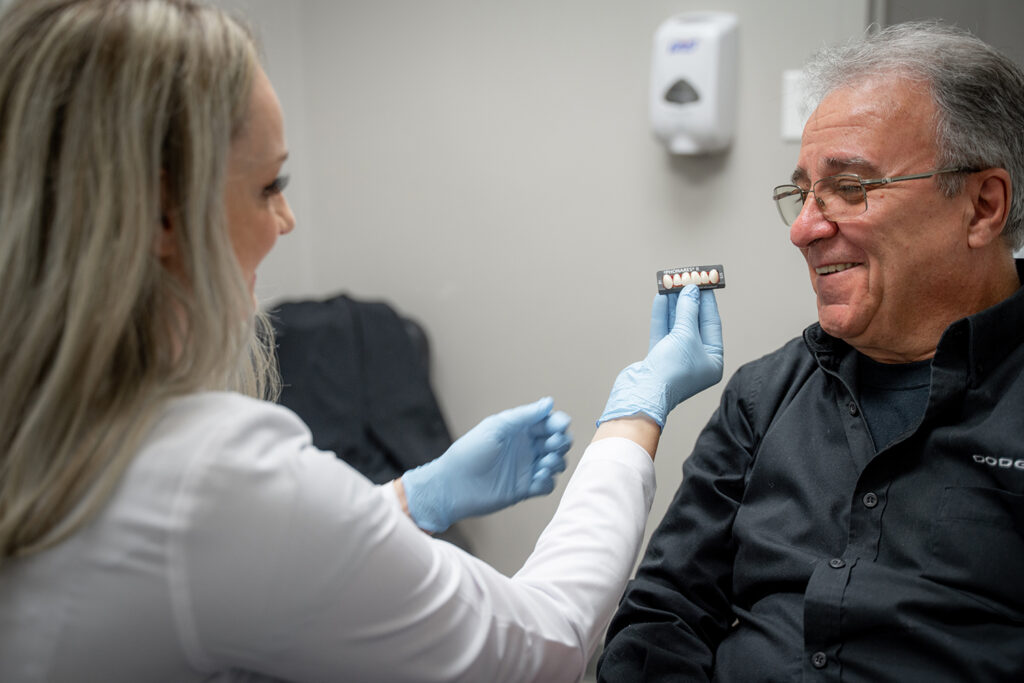
If your dentures are in decent condition, your dentist might be able to attach implants to them. You’ll find implant-supported dentures and fixed-implant dentures more secure of a fit. The benefits of choosing this approach include:
- Maintain your appearance
- Regain your confidence in life
- Ability to eat food normally
- Strong and durable
Final Thoughts on How Long to Wait to Get Dentures
Are you thinking about getting dentures to improve your smile and reduce pain? There are many options available, and it might be the best solution for you, especially if you’ve lost molars or have gum disease.

Shreve Denture Clinic can help. Please call 519-322-5900 to schedule an appointment or use the contact form.
